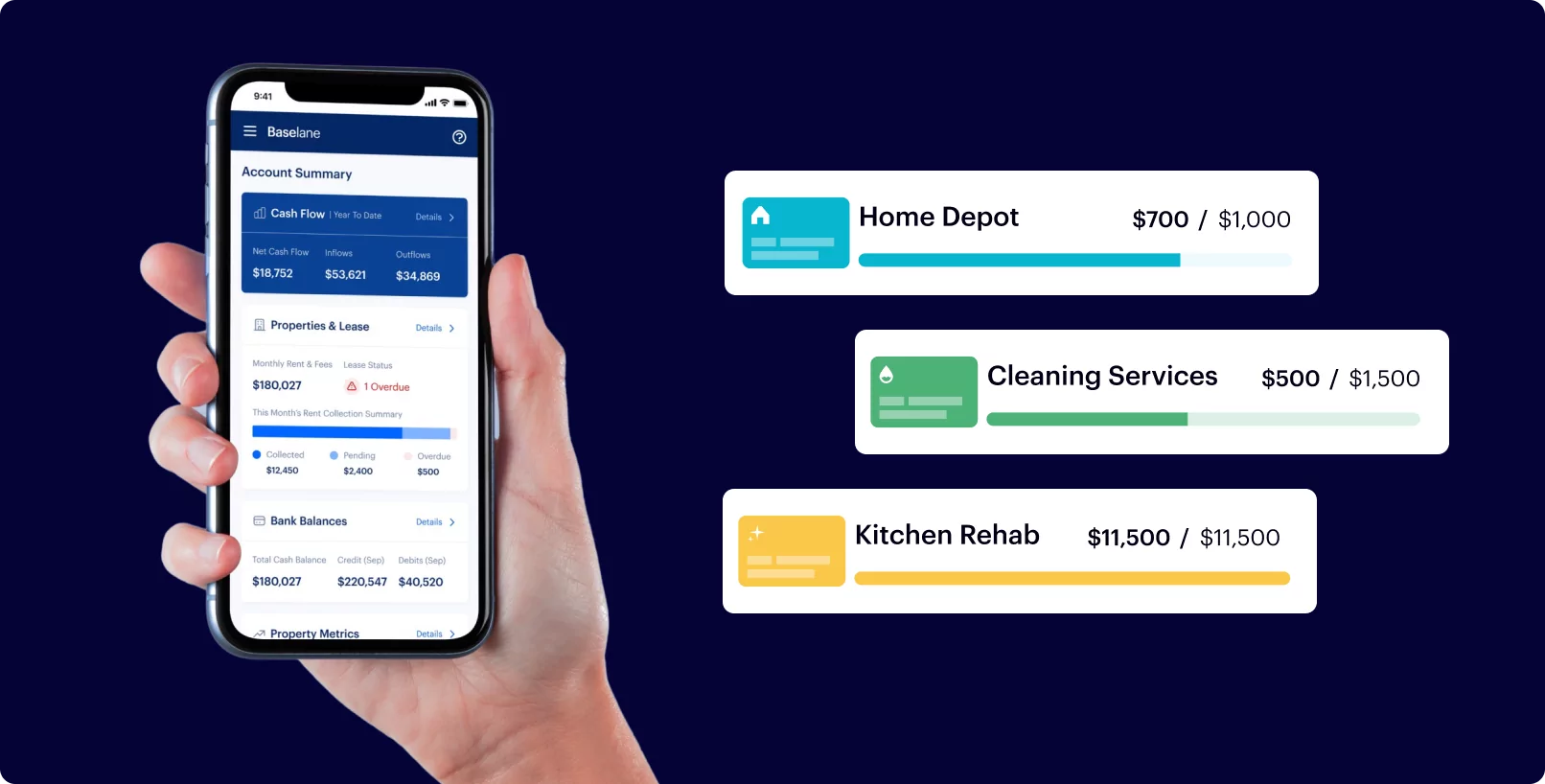Being a landlord isn’t always sunshine and rainbows. You will occasionally find yourself in a dispute with a tenant, and courts tend to be more lenient with tenants who mess up than they are with landlords. For that reason, it’s important to understand Florida landlord-tenant laws to protect your rights.
Note: While this article aims to be helpful, we recommend you get the advice of a qualified Florida real estate lawyer when navigating tenant disputes.
Selection, Screening, and Rental Agreements
When leasing your Florida rental property to a new tenant, you have the right to engage in any screening measures you see fit, as long as they don’t violate any state or federal laws. For example, you can require prospective tenants to provide proof of income, a credit report, and a criminal history report with their rental application as part of the rental agreement.
You also have the right to negotiate just about anything as part of the lease agreement. This includes setting monthly rent prices at any amount since Florida has no rent control laws. Additionally, you can include penalties for certain breaches, like late rent payments or if a tenant moves out before the end of the lease. You can include it in the lease as long as the applicant agrees to it, and a court won’t find it unreasonable.
When it comes to selection and screening, keep in mind that tenants have a right not to be discriminated against for reasons defined in the Fair Housing Act and other legislation. Tenants can also withhold rent and/or end their tenancy early if they don’t meet the obligations outlined in the lease agreement. This is an important aspect to specify in your rental agreement.
| Rights | Responsibilities |
|---|---|
| Screen potential tenants and require documentation such as proof of income, a credit report, and a criminal background check. | Not discriminate against any identifiable group as defined in the Fair Housing Act, and not discriminate against servicemembers. |
| Charge any amount for rental payments. | Not increase the rent for the duration of the lease. |
| Specify and enforce rules, responsibilities, and codes of conduct. | Not ask the tenant to abide by rules that would be seen as unreasonable.
Uphold your obligations under the rental agreement. Provide tenants with a seven-day notice to remedy problems when they arise. |
| Enforce penalties for lease violations like late rent payments.
Enforce the terms and conditions agreed to in the lease. Evict a tenant when multiple offenses occur within a 12-month rental period. | Not engage in retaliatory conduct for violations. Provide reasonable notice prior to eviction. |
| Allow the tenant to terminate the lease if you fail to meet your obligations and forfeit rent payments for periods during which the unit is uninhabitable. |
Collecting Security Deposits
According to Florida landlord-tenant law security deposit policies, you also have the right to charge any amount for a security deposit. At the end of the tenancy, you can use the deposit to recover the cost of unpaid utilities, property damage (beyond wear and tear), and unpaid rent.
When collecting a security deposit, you are required to hold the money in a separate bank account. You must pay interest on the deposit if it is an interest-bearing account. If you have five or more rental units, you must also give the tenant a written disclosure of the deposit within 30 days.
Under Florida security deposit laws, you must return the deposit within 15 days after the tenant moves out or notify the tenant within 30 days if you take deductions.
Keep in mind that tenants have a right to negotiate the security deposit before signing a lease, as well as the right to challenge your deductions in court if they feel they’re unsubstantiated.
| Rights | Responsibilities |
|---|---|
| Collect a security deposit in the amount of your choosing. | Hold security deposit funds in a separate bank account or post as a surety bond. AND If you have five or more rental units, provide a written disclosure within 30 days of receipt. |
| Deduct security deposit funds to recover costs after the tenant moves out. | Return the security deposit, plus interest, within 15 days of the tenant moving out. OR Give notice of your intent to take deductions by certified mail within 30 days of the tenant moving out. |
| Receive reimbursement for your legal fees if the tenant unsuccessfully challenges your deductions. | Reimburse the tenant for their legal fees if they successfully challenge your deductions in court. |
Collecting Rent Payments
After your tenant moves in, you have the right to collect rent payments as agreed to in the lease. You can require the rent to be paid in your chosen method, such as automated online rent collection.
You have the right to increase the rent by any amount at the end of each lease term or after an extended period of time agreed to in the lease. In fact, Florida law prohibits rent control in all cities and counties. The state has no specific requirements for giving a rent increase notice beyond 60 days when you’re not renewing the lease.
If your tenant falls behind on rent, you have a responsibility to give them written proper notice and a minimum of six business days (in total) before you can start the eviction process. If the tenant disputes your eviction notice, you have the right to sue them for possession of the property. You can also sue them for damages, including unpaid rent and legal costs.
When it comes to paying rent, tenants have the right not to be harassed over late rental payments and the right to stay in the rental unit without interference until a writ of possession is enforced.
| Rights | Responsibilities |
|---|---|
| Collect rent payments and late fees using your preferred method as agreed to in the lease. | Give the tenant a grace period of three business days before issuing a written demand for payment of rent. |
| Evict a tenant for nonpayment of rent. | Allow an additional three business days after you deliver a written demand before pursuing eviction. |
| Continue pursuing eviction and damages after accepting a partial rent payment. | |
| Appeal to the county court and sheriff’s office to enforce an action for eviction and deliver a judgment for unpaid rent. | Allow the evicted tenant to remain on the premises until a judge issues a writ of possession and the sheriff enforces it. |
Maintenance and Repairs
As a Florida landlord, you have both a responsibility and a right to keep your rental property in good repair. You also have the right to enforce your tenant’s obligation to keep the rental unit clean, sanitary, and damage-free. This includes long-term and short-term rentals in Florida.
You can access the rental premises to conduct repairs or an inspection, provided you give the tenant reasonable notice in writing and enter at a reasonable time. Florida landlord-tenant laws define “adequate notice” as 24 hours and a reasonable time of entry between 7:30 am and 8:00 pm. You also have the right to enter without notice if the tenant agrees to it or in case of an emergency.
As a landlord, you’re not obligated to uphold Florida landlord-tenant law repairs for damage caused by the tenant (whether intentionally or not). You are also not expected to maintain the property over and above what the building code requires.
However, tenants do have the right to insist that you conduct maintenance to keep the home up to code. They also have the right to refuse your access within reason, including if you’ve failed to give them proper notice.
| Rights | Responsibilities |
|---|---|
| Require tenants to keep their units clean and properly dispose of garbage. | Maintain the property according to applicable building, housing, or health codes. |
| Enter for the purpose of inspection, with or without the tenant’s consent, provided adequate notice is given. | Provide at least 24 hours of notice before entering a unit to make repairs, and do not enter between 8:00 pm and 7:30 am. |
| Enter to make necessary repairs, with or without the tenant’s consent, provided adequate notice is given. | Keep common areas clean and safe. |
| Enter without notice in an emergency for the “protection or preservation” of the property. | Provide reasonable provisions for pest control. |
| Refuse to repair damage caused by the tenant’s malice or neglect. | Not abuse the right of access or use it to harass the tenant. |
| Refuse to complete repairs that don’t affect health and safety. | Not interfere with the tenant’s reasonable access to the property. |
Providing Utilities
In Florida, you can make the tenant responsible for paying utilities, but you are responsible for providing functioning facilities. For instance, you can make them pay the electric bill so long as you supply the water heater. Note that it’s against Florida tenant laws to disrupt any utility service provided to the tenant, even if you pay for them yourself.
| Rights | Responsibilities |
|---|---|
| Require the tenant to pay for utilities, including water, gas, electricity, and garbage collection. | Not disrupt any utilities (e.g., air conditioning) even if you’re the one paying for them. |
| Provide functioning facilities for heat, running water, hot water, garbage removal, and smoke detection. |
Ending a Tenancy
As the owner of a Florida investment property, you have the right to take back possession of the rental unit when the lease expires (with adequate notice). You also have a right to be compensated in the event a tenant breaks the lease early or stays after the lease has ended.
If no termination fee is specified in the lease, the tenant is liable for lost rental income while the unit is vacant until the original lease term ends. For example, if you re-rent the unit after one month, the outgoing tenant only owes rent for the month it was vacant. You will need to prove that you made an effort to find a new tenant to be successful in your claim.
Additionally, Florida’s landlord-tenant laws require you to allow servicemembers to move out with a 30-day notice if they’re posted to another location, become eligible for government quarters, are discharged, or die on active duty.
When it comes to ending the tenancy, tenants have the right to move out at the end of a rental term, provided they give you 60 days’ notice (or 15 days for a month-to-month lease). They also have the right to remain on the property until a writ of possession is enforced, even if the lease has expired.
| Rights | Responsibilities |
|---|---|
| End the tenancy without cause at the end of a lease term. | Give 60 days of notice if the lease is annual or 15 days of notice if the lease is month-to-month. |
| Require tenants to give adequate notice before moving out. | Allow renters to end their tenancy without cause at the end of a lease term. |
| Charge a fee for breaking the lease and/or seeking damages as permitted by law. | |
| Charge a fee for breaking the lease and/or seeking damages as permitted by law. | Set out fees for breaking the lease in the rental agreement. OR Make a reasonable effort to find a new tenant and charge the outgoing tenant only the amount you’re unable to recover. |
| Allow servicemembers to break the lease with a 30-day notice in certain circumstances. |
Bottom Line
While Florida is landlord-friendly, you could be on the hook for unpaid rent if you don’t uphold your obligations. You can help prevent disputes with a lease agreement that clearly defines the rights and responsibilities of you and your tenants.
Learn more about being a Florida landlord with our Florida Real Estate Investing Guide.
FAQs
There is no provision under Florida landlord-tenant laws for an eviction claim after a tenant has caught up on the rent. However, you may choose not to renew a tenant’s lease for any reason, including a history of late payment.
Yes. If you don’t meet your obligations under the lease or law, your tenant may be allowed to withhold the rent and/or move out after giving you written notice.
If you’ve provided a minimum of 24 hours notice and are entering between the hours of 7:30 am and 8:00 pm, your tenant cannot unreasonably refuse to let you enter. If they continue to refuse your entry, you may be able to pursue eviction and/or appeal to the court to enforce your rights.







